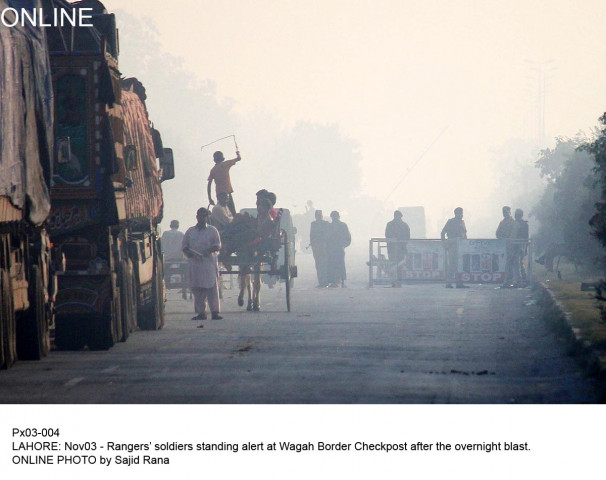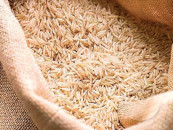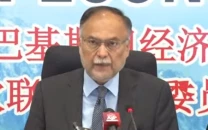Ties with India: Trade tension rises after Wagah border attack
Businessmen plead for delinking bilateral trade from the issue of terrorism

After Sunday’s attack at the Wagah border, a setback to trading activity has been envisioned as a backlash.
However, hope is keeping the business community optimistic over the future of bilateral trade between Pakistan and India.
There were reports of bilateral trade being suspended soon after the blast, which killed over 50 people, but a Customs official said trade resumed but only for a limited amount of time.
Only 10 trucks from Pakistan crossed the border on Monday, while India did not send any, he said. Normally, around 300 trucks from both countries cross the border during trading hours.
Long queues of trucks were seen all around the Grand Trunk road in Lahore, waiting for trade to reopen.

The business community once again asserted the need to develop a joint mechanism from traders on both sides to counter such acts, which would ultimately affect bilateral trade.
“This is the time that private sectors of both sides need to come forward and build a mechanism that protects bilateral trade,” said Lahore Chamber of Commerce and Industry (LCCI) President Ejaz Mumtaz.
Pakistan’s economy is going to be the ultimate loser when such acts of terrorism occur, said Mumtaz. Traders from both sides have matured many deals but the suspension has once again added to the worries, he said.
Pak-India bilateral trade is the key to enhancing trading activities in the South Asian region, as both countries account for around 90% of the regional Gross Domestic Product. Experts believe that the nature of relations between Pakistan and India is the biggest hurdle in making this region the engine of global economy.
They said that trade and other issues should be dealt with separately and nothing should disrupt business activities.
The current bilateral trade volume is around $2.4 billion and studies have termed it very low in comparison to its potential. Research reports also said that the trade volume between $10-15 billion would be powerful enough to outweigh geostrategic concerns.
“If we want to compete with the world, then we have to act accordingly”, said Saarc President Iftikhar Malik. This terrorist attack might hurt trading activities but the chambers are meant to counter this and we will do our best to normalise the situation, he added.
He further said that this is the responsibility of the state to protect the overall business environment as one single terrorist activity hurts investors’ confidence and can derail the country’s economy.
Positive reactions emerge
The condemnation from the Indian premier is also a positive signal for trade normalisation, according to some traders. They also said that business continued despite the tension at the Line of Control.
“This is an internal issue of terrorism, whereas trade is a totally separate matter,” said former finance minister Dr Salman Shah. “Bilateral trade might get hurt but this period of uncertainty will be short.”
Country to country disagreement on trade is unlikely to happen due to this blast. “Trade will go on; however the security checking of trucks will be tightened as many of them also arrive from Afghanistan”, Shah added.
Published in The Express Tribune, November 4th, 2014.
Like Business on Facebook, follow @TribuneBiz on Twitter to stay informed and join in the conversation.



















COMMENTS
Comments are moderated and generally will be posted if they are on-topic and not abusive.
For more information, please see our Comments FAQ